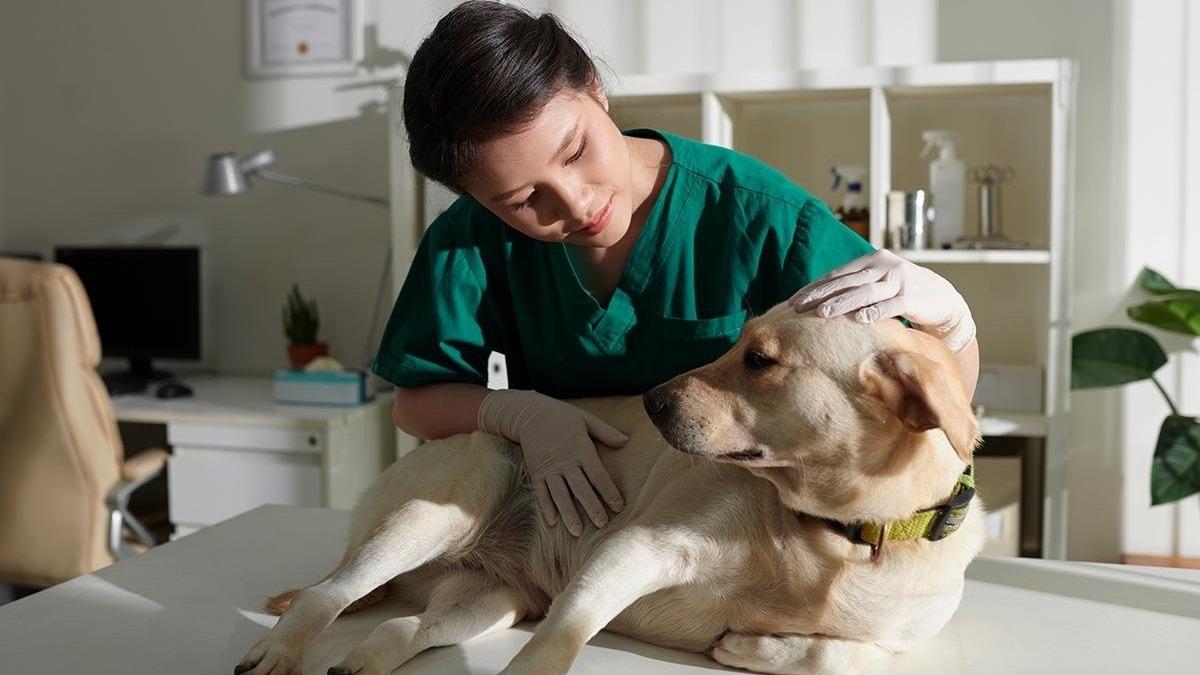This article contains data from Spot plans in the U.S. and was originally written for the U.S. market. The content in this article should be used for educational purposes only for Canadian audiences.
What We Know So Far
Since mid-August of this year, a new respiratory illness has been sweeping across the U.S. affecting dogs of all breeds and ages. Veterinary clinics across the country have seen an increase in cases of an unidentified respiratory infection, leaving experts baffled by the sudden emergence and rapid spread of the illness.
According to Chris Holland, head of Spot's Research and Data Group, "In October, we saw a 64% increase in claims for upper respiratory profiles and a 23% increase in cough tablet usage. This is highly unusual and outside the range of what we might find normal for this time of the year."
The American Veterinary Medical Association, is urging pet parents to make sure their dogs are fully vaccinated and are kept away from other dogs until the illness can be contained.
Symptoms
The symptoms of this condition are similar to those of kennel cough, a respiratory condition common in dogs. However, this new illness is far more severe and much more persistent, causing a range of symptoms such as:
Coughing
Wheezing
Sneezing
Nasal or Eye Discharge
Lethargy
Difficulty Breathing
Blue or purple gums
Loss of appetite
Weight loss
Causes
Veterinary experts are working tirelessly to identify the cause, conducting extensive research and analyzing clinical samples from dogs affected by the condition. The current theory is that the condition is caused by a virus, but experts have yet to definitively identify the cause.
Transmission
Experts are not yet certain how the condition is spread but believe direct contact between dogs, either through respiratory droplets or contaminated surfaces may be the mode of transmission. This highlights the importance of maintaining proper hygiene practices and avoiding contact with sick dogs during this time.
Diagnosis
Diagnosing this new respiratory illness in dogs can be challenging due to its similarity to other respiratory infections. Veterinarians rely on a combination of factors, including the dog's medical history, clinical signs, and diagnostic tests, to reach a definitive diagnosis.
Currently, experts have noticed that the illness typically progresses in three ways. Pets can develop a mild to moderate cough, lasting six to eight weeks, and sometimes longer. Generally, the cough doesn’t respond to treatment with antibiotics or responds only slightly. Other dogs present with chronic pneumonia that again, does not respond to antibiotic treatment. In the most serious cases, dogs develop severe pneumonia and often succumb to the condition within 24 to 36 hours.
Treatment
Currently, no specific cure for this new respiratory illness is available. However, veterinarians can provide supportive care to alleviate symptoms and manage the condition. Veterinarians can administer:
Fluids: Maintaining hydration is crucial to prevent dehydration and support the body's functions.
Antibiotics: In some cases, antibiotics may be prescribed to treat secondary bacterial infections.
Pain Medication: Pain medication can be administered to alleviate discomfort and improve the dog's quality of life.
Rest: Adequate rest is essential for the body's recovery process, allowing the immune system to focus on fighting the infection.
Prevention
While there is no vaccine currently available to prevent dogs from contracting this new respiratory illness, pet parents can take proactive measures to minimize their pet's risk of infection.
Vaccination: Vaccinating your dog against other respiratory viruses, such as parainfluenza and Bordetella, can provide some level of protection.
Social Distancing: Limiting contact with sick dogs and avoiding crowded dog parks can help reduce the risk of exposure.
Hygiene Practices: Maintaining good hygiene, including washing hands after handling your dog and disinfecting shared spaces, can help prevent the spread of the virus.
What Veterinary Experts Are Saying
Veterinary experts are deeply concerned about the spread of this new illness, which has already been seen to be fatal in severe cases. Dog parents are urgently warned to avoid dog parks, grooming facilities, boarding facilities, and other areas where their pets might interact with unknown dogs. This may be difficult as individuals travel over the holidays, but experts recommend pet parents avoid boarding their pets this holiday season, if at all possible. Dog parents should monitor their pets for any symptoms and take their pets in for treatment if they begin to show symptoms. Delaying treatment is not recommended as dogs can develop pneumonia if left untreated.
Conclusion
This mysterious respiratory illness has emerged as a significant threat to the health and well-being of dogs across the United States. While the exact cause and mode of transmission are still being investigated, veterinarians are actively engaged in research to combat the spread of this illness. Dog parents play a pivotal role in protecting their pets by staying informed, practicing preventive measures, and seeking timely veterinary care.
- Written by Melina Acra, Pet Health Specialist

Creative manager by day, pet enthusiast all the time! After 19 years with my dog (hopefully he wins the award for oldest pet in the world), I enjoy spending my days brainstorming tail-wagging content, and sniffing out the latest trends in the pet world.
“Canine Respiratory Disease Outbreaks.” Cornell University College of Veterinary Medicine, Cornell University College of Veterinary Medicine, www.vet.cornell.edu/departments-centers-and-institutes/riney-canine-health-center/canine-health-information/canine-respiratory-disease-outbreaks.
Stabley, Justin, and Casey Kuhn. “7 Questions Answered about the Unidentified Dog Respiratory Illness.” PBS, Public Broadcasting Service, 20 Dec. 2023, www.pbs.org/newshour/health/7-questions-answered-about-the-unidentified-dog-respiratory-illness.
Haid, Melanie. “Unknown Dog Respiratory Illness: What We Know so Far.” American Kennel Club, American Kennel Club, 11 Dec. 2023, www.akc.org/expert-advice/health/unknown-canine-respiratory-illness/.












